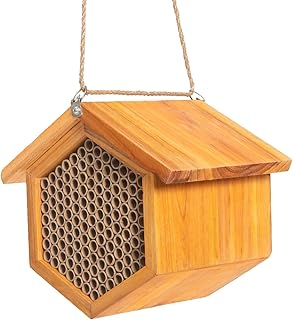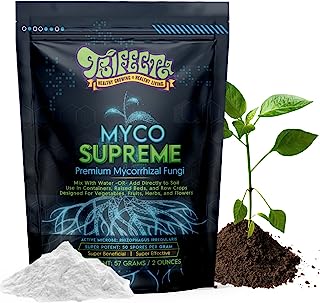5 important factors worth considering when looking for the best raspberry plants
When you decide to buy raspberry plants, there are important things to think about to make sure your experience is successful. You need to know which type of raspberry plant will grow best in your area and soil, and you should choose plants that are healthy with strong roots. Every decision you make when buying raspberries will affect how well they grow and produce fruit in the future. Learning more about these factors can help you create a great raspberry patch in your backyard, full of delicious berries and the happiness of making smart choices.
See our guide to the best raspberry plants.
Variety compatibility with your climate
When choosing raspberry plants, it’s important to think about how well the variety will do in your area’s weather. Different types of raspberries do better in different climates, which affects how well they grow and how many raspberries they produce. For example, if you live in a place that’s cold with a short growing season, you might want to pick kinds like Heritage or Boyne because they can handle frost well. But if you live somewhere warmer, varieties like Caroline or Dorman Red might be better for growing raspberries successfully.
Knowing what kind of climate each raspberry variety needs can really help you have success with your garden. By making sure the plants get the right amount of sun and heat for your area, you can grow strong plants that give you lots of raspberries. By paying attention to which raspberry types work best in your climate, you can not only help your plants grow well but also feel more connected to the nature around you. By matching your gardening to your local climate, you can create a balanced system that gives you tasty raspberries year after year.
Disease resistance
When you buy raspberry plants, it’s important to choose ones that are resistant to diseases. This will help keep your plants healthy and productive. Diseases like powdery mildew, root rot, and cane blight can harm your raspberry patch, causing slow growth and less fruit. By picking disease-resistant types, you can protect your plants and ensure a good harvest year after year. Plus, these plants need less care and chemicals, which is better for the environment.
Getting disease-resistant raspberry plants doesn’t just keep your garden healthy, it also makes growing them easier and more fulfilling. By focusing on resistant traits when picking your plants, you can prevent problems and create a thriving raspberry environment. With sustainable gardening becoming more popular, choosing strong varieties is a wise decision that helps your garden and supports a diverse farming landscape.
Fruit yield
When choosing raspberry plants to buy, it’s important to think about how much fruit they can produce. Picking varieties that yield a lot of fruit not only means you’ll have a big harvest, but also ensures your hard work in the garden pays off. Picture yourself walking into your garden and finding lots of plump, juicy raspberries to enjoy – it’s a happy and satisfying sight. It’s even more exciting to taste the fruits of your labor when you’ve carefully chosen plants that are known for being productive. Investing in raspberry plants that are known for producing a lot of fruit sets the stage for a fun and rewarding gardening experience.
Also, focusing on fruit yield when buying raspberry plants helps you make the most of your garden space. By choosing varieties that yield a lot, you are making a choice to use your resources and time wisely. Instead of picking plants that only give you a small harvest, why not choose ones that can thrive and provide plenty of delicious raspberries? By intentionally selecting plants, you create a garden that not only looks great but also serves a practical purpose by giving you lots of fresh, tasty fruit.
Growth habit (erect or trailing)
When you’re picking raspberry plants for your garden, whether they grow upright or trail along the ground is important for how successful your gardening efforts will be. The choice between an upright or trailing growth habit doesn’t just change how the plants look, but also affects how much work you’ll need to put in and how many raspberries you’ll get. Upright varieties grow straight up, so they’re easier to take care of and pick from because they’re neat and organized. However, they might need extra support like trellises to keep the heavy canes from bending under the weight of the fruit. On the other hand, trailing raspberry plants spread out horizontally, creating a lush and full display, but they need more room and careful pruning to control their growth.
When deciding between upright or trailing raspberry plants, think about what you want to achieve in your garden and how much space you have. If you want an easy harvest and a tidy garden, an upright raspberry plant might be best. If you prefer a more natural look and lots of berries, trailing varieties can be charming with their hanging canes. Consider how much work each type of plant will need and how much space they’ll take up to make sure your raspberry plants grow well and produce a good harvest. By thinking about the growth habit along with factors like soil and climate, you can make a smart choice that leads to a successful raspberry patch that meets both your practical needs and your taste in gardening.
Soil requirements
When you buy raspberry plants, it’s important to consider the type of soil they need. Good soil is key for helping your raspberries grow well and produce lots of fruit. Raspberries do best in soil that drains well and has a slightly acidic pH level between 5.5 and 6.5. This acidity helps the plants absorb the nutrients they need for healthy roots and strong growth.
Adding organic material like compost or manure to the soil can also help improve its quality. This enriched soil gives raspberry plants the nutrients they need to grow strong roots and produce plenty of fruit. If you don’t pay attention to the soil quality when you get raspberry plants, it can hurt their health and how much fruit they produce. By focusing on the soil requirements and using the right soil, you can help your raspberry plants succeed and have a fruitful harvest for years to come.
Conclusion
In conclusion, raspberry plants are appealing because they produce delicious fruit and bring joy to those who care for them. Taking care of raspberry plants teaches us about the relationship between nature and people. Each year, these plants not only give us tasty berries, but also remind us of the cycle of growth and renewal. Growing raspberries is more than just a hobby; it is a meaningful journey that helps us connect with nature and appreciate its beauty. Want more info on dehydrater, check the best dehydrater.



